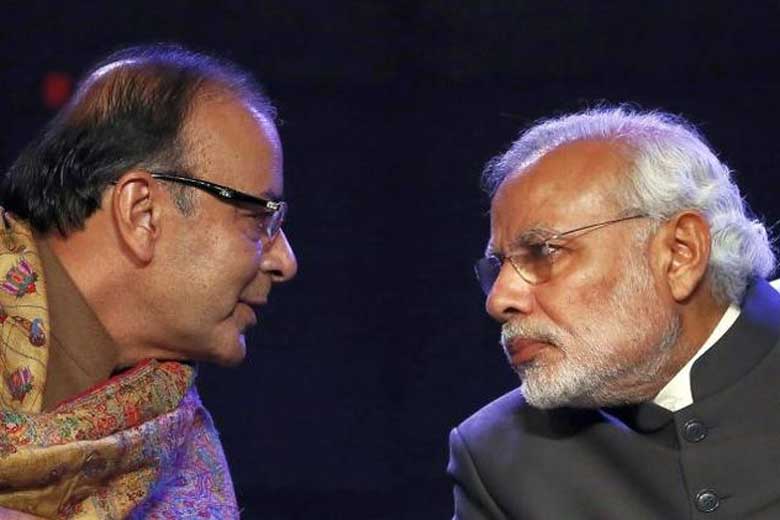NEW DELHI: Prime Minister Narendra Modi led a high-level review of the crisis that has engulfed the global financial markets and triggered a record crash in Indian stocks while sending the rupee to a two-year low.

Maintaining a close watch on developments, the government is not contemplating any immediate package but is looking to push ahead with ongoing reforms and undertake considered steps to help the country build on its strengths and take on the “baton of highest-growing economy in the world.” “The Prime Minister was of the view that in the given scenario, if we maintain our growth, which we would, then it would further strengthen our economy,” finance minister Arun Jaitley told reporters at a press conference late on Monday after the meeting.
Modi wants some steps taken to prepare the country to take advantage of the opportunity that the situation has presented and hold detailed consultations with stakeholders including state governments on what is to be done.
The meeting was attended by Jaitley, minister of state for finance Jayant Sinha, chief economic advisor Arvind Subramanian and finance secretary Rajeev Mehrishi. India’s benchmark stock indices crashed nearly 6% on Monday while the broader markets fared worse with the midcap and smallcap indicators falling by double digits after the Chinese crisis deepened, spreading global panic.
The Indian currency fell further to close at 66.64 to the dollar, the lowest in more than two years. Chinese stocks fell nearly 9% on Monday after government measures to prop up the markets fell short of expectations and manufacturing PMI dropped to the lowest in more than six years. Sinha said the Prime Minister’s key message was on India’s role in leading global growth. “This is a good opportunity for us… What more can we do to take the reform agenda forward,” Sinha said, elaborating on the PM’s theme.
Jaitley said the government is keeping a close watch on the situation and is in touch with the Reserve Bank of India (RBI) and the Securities and Exchange Board of India (Sebi) and will take steps as and when necessary.
Jaitley said the government has already increased public spending and the strategy will continue going forward to boost growth and sought to allay market concerns, saying the crash had nothing to do with the domestic economy that was in revival mode and likely to grow at over 8% in the current fiscal. “Our response at this stage is very clear. We have to strengthen our own economy,” he said earlier in the day on the sidelines of a Central Board of Excise and Customs event, stressing that “there is not a single domestic factor in India which has either contributed to it or added to it.”
The global market slump will have a “transient” impact on the economy, he said. “We have embarked upon a path for one year and a quarter that even in the midst of a global slowdown India should emerge as one of the fastest-growing economies in the world,” Jaitley said.
External factors “are causing volatility and turbulence which you have seen across these asset markets,” Sinha told reporters at the event.
“This will take time to play out. Volatility is part and parcel of operating in these capital markets.” He said the authorities were watching the situation closely. Finance secretary Rajiv Mehrishi said, “Indian market movement is in line with Asian markets. Indian markets are not out of sync with global markets. RBI will take a call on when to intervene to stem rupee slide.” Jaitley said the Indian economy was in good shape.
“Our fiscal deficit figures are under control. Inflation is very much under control. We stand by the growth projections which we made at the beginning of the year and indirect taxation data actually supplements the idea of those projections,” he said. The government expects the economy to grow by more than 8% in the current fiscal, well above the 7% estimate of rating agency Moody’s.
Total indirect tax collections in the first four months of the fiscal have risen 37% from a year earlier and, adjusted for additional tax measures, revenues are up a healthy 14.6%, which the FM said was indicative of a pickup in manufacturing.
“It is the most realistic estimate we have… it’s a reality. And probably this is one of the better news (with regard to) economic indicators because it factors in how the manufacturing sector is likely to do and how the services sector itself is likely to do,” he said.
The finance minister said the monsoon had been “fairly reasonable” and would boost growth prospects by enhancing demand and increasing economic activity during the course of the fiscal.